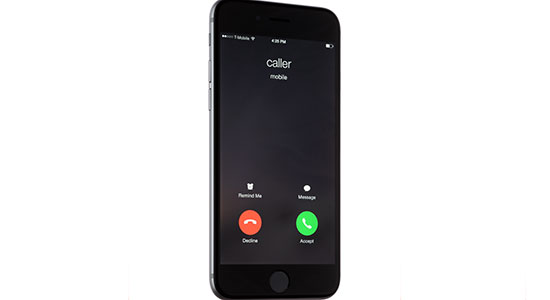Out There
Flipping Bird at Cop is Protected, Federal Appeals Court Says

A police officer stopped a Michigan woman for speeding, and issued a ticket for a non-moving violation, a lesser offense. Unhappy, she flipped him off while driving away. That angered the officer, who
stopped her again and issued the speeding ticket.
Last month, however, a three-judge panel for the U.S. Court of Appeals for the Sixth Circuit ruled that the driver had a First Amendment right to express her discontent with the hand gesture.
“Fits of rudeness or lack of gratitude may violate the Golden Rule," wrote Judge Jeffrey Sutton. “But that doesn't make them illegal or for that matter punishable.”
"Any reasonable officer would know that a citizen who raises her middle finger engages in speech protected by the First Amendment," wrote Sutton, concluding the officer had no basis to stop the driver a second time to issue the speeding ticket.
Source: NPR
Got a Nugget to Share?
Send your ideas for interesting facts, trends, tips, or other bits and bytes to wislawmag@wisbar.org, or comment below.
By the Numbers
95%
– The percentage of all U.S. cases that are filed in state courts, according to 2016 statistics from the Court Statistics Project at the National Center for State Courts.
For instance, there were 84 million filings in the state trial courts, compared with 368,000 filings in the federal district courts.
Source: National Center for State Courts
Tech Tip
Beware of Caller ID Spoofing

What is Caller ID spoofing? According to the Federal Communications Commission, “Caller ID spoofing is when a caller deliberately falsifies the information transmitted to your caller ID display to disguise their identity. Spoofing is often used as an attempt to trick someone into giving away valuable personal information so it can be used in fraudulent activity or sold illegally.”
Spammers use Caller ID spoofing in a variety of schemes, most notably, for IRS and bank fraud. How it works: a person receives a phone call from a spammer claiming to be from the IRS or the person’s bank.
If the person cannot tell it’s a scam from the beginning, the person might Google the phone number, only to find out the number is legitimate, and later, that the spammer is not.
Be skeptical of callers who ask for personally identifiable information or demand immediate wire transfers. Do not trust the caller on the sole basis of their phone number. If you are unsure, end the phone call. Then call the trusted number on the back of your bank card or on authentic government websites to report the call and ask about its legitimacy.
Source: Christopher C. Shattuck – Practice Management Advisor (Practice 411™), State Bar of Wisconsin
On the Radar
U.S. Supreme Court to Decide “Fuct” Trademark Case

Some California skateboarders wanted to trademark the word “Fuct” for a clothing line, but the U.S. Patent and Trademark Office refused on the ground that the word was “scandalous” or “immoral.”
A federal appeals court ruled that trademark applications could not be refused simply because they were off-putting, and sided with the skateboarders. Now, the U.S. Supreme Court will decide.
In deciding the case, the Supreme Court will likely revisit a 2017 decision that said federal law cannot bar trademarks that disparage people or “bring them into contempt or disrepute,” according to NBC legal analyst Pete Williams.
“That decision was a victory for the Asian-American leader of a Portland dance-rock band who wanted to call his group ‘The Slants,’” wrote Williams, referring to band leader Simon Tam.
Simon Tam will be talking about his eight-year journey to the U.S. Supreme Court on day one of the State Bar of Wisconsin’s two-day Annual Meeting and Conference, June 13-14, in Green Bay.
Check out the schedule at amc.wisbar.org.
Quotable
“Our concern is that over the last couple of decades in the criminal justice system, many of the forensic disciplines we have traditionally relied upon lack fundamental validation and have in many cases produced results that are wrong.”

– Keith Findley, U.W. Law School professor and senior director of the Wisconsin Innocence Project.
Findley was recently quoted in an ABA Journal article, which notes that Findley and Wisconsin attorneys Jerry Buting and Dean Strang recently created a nonprofit called the Center for Integrity in Forensic Sciences, dedicated to strengthening forensic sciences and improving the reliability and safety of criminal prosecutions.
Buting and Strang gained legal fame as defense attorneys for Steven Avery, the main character in the highly popular Netflix docuseries, Making a Murderer.
Source: ABA Journal; U.W. Law School
Good Ideas
April is Alcohol Awareness Month

In February 2016, Wisconsin Lawyer ™ published an article on the high rates of problem drinking among lawyers, based on a landmark national study. It showed that problem drinking among lawyers was more than three times higher than in the general population.
The legal profession is still talking about that study. Earlier this year, CNN noted the study and posted a story about Steven Wall, managing partner at the international law firm of Morgan Lewis.
The article details Wall’s longtime drinking problem and how it finally escalated with his last bender, on a business trip, before a 30-day rehab stay that gave him a second chance. With his firm’s support, he remains the managing partner.
The article also notes the ABA’s “well-being pledge campaign.” About 70 law firms and numerous law schools and corporations have pledged to acknowledge the problems of substance abuse in the legal profession and support a seven-point framework to tackle it.
The State Bar of Wisconsin is here to help, through the Wisconsin Lawyer Assistance Program (WisLAP).
This confidential resource for lawyers, judges, law students, and their families, can help address problems before they adversely affect the quality of your life and your career.
WisLAP 24 Hour Helpline: (800) 543-2625
WisLAP Manager Mary Spranger, mspranger@wisbar.org, (800) 444-9404, ext. 6159
